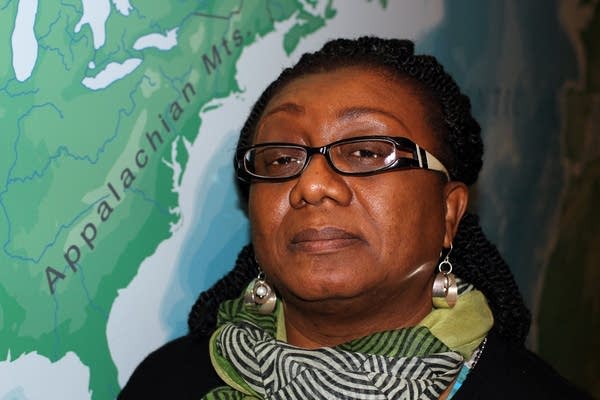Minnesota health care workers to join Ebola fight in Liberia

Eleven doctors and nurses, most of them from Minnesota, leave for Liberia today to help open a new Ebola treatment unit under construction in a remote jungle along the West African country's eastern border.
Four of the health workers making the trip are Liberian-Americans who want to help their native country eradicate the deadly disease.
"I will do the best that I can do to come back safe," said 61-year-old Coon Rapids nurse John Paye, who came to the U.S. from Liberia 34 years ago.
Paye feels an obligation to return to his native country to share his desperately-needed nursing skills. And a more personal reason is pushing Paye back to Liberia: His oldest daughter and her son live in Monrovia, and he still has siblings in the country.
Create a More Connected Minnesota
MPR News is your trusted resource for the news you need. With your support, MPR News brings accessible, courageous journalism and authentic conversation to everyone - free of paywalls and barriers. Your gift makes a difference.
"If I retire," he said, "how would I go back home? Where would I call home? Where would my grandchildren visit grandpa?"
• More MPR News Ebola coverage

As the Ebola outbreak intensified this fall, Brooklyn Park nurse Doris Parker spent hours surfing the Internet looking for ways she could help in Liberia. She called the World Health Organization and the U.S. Centers for Disease Control and Prevention. But she couldn't find anything that would pay her way.
"As much as you desire to do good, you have to face reality," she said. "You have a life here, you have a mortgage, you have rent, you got all this stuff that you need to take care. And hey, I'm not Bill Gates."
When she saw a job posting from the American Refugee Committee, Parker jumped at the opportunity. The three-month assignment comes with a stipend that will cover all of her bills while she's gone. And a woman in her church donated $100 for her trip.
Despite the dangers of treating Ebola in West Africa, hundreds of people have applied for the handful of temporary medical positions at the American Refugee Committee's treatment unit in Liberia.
ARC President and CEO Daniel Wordsworth says his organization is especially pleased by the response from Minnesota's Liberian American community.
"The fact that many of them have come from Liberia means that they have that sort of cultural competence that they can hit the ground and start working quickly," he said.
Almost 100 doctors and nurses will be needed to run the Ebola treatment unit. Most will be from Liberia, with only a dozen or so U.S. health workers assisting them. The American doctors and nurses will supervise and train the Liberian health workers, which will limit the U.S. team's exposure to Ebola. But Wordsworth says it's possible that some of them will need to do more hands-on work with patients in an emergency.
The remote jungle area where the new Ebola treatment unit it located has had a few reported case of the disease. ARC's main goal is to contain those cases and prevent Ebola from spreading into nearby Ivory Coast.
The Ebola treatment unit is scheduled to open in December with 10 beds. Another 20 will be added later.